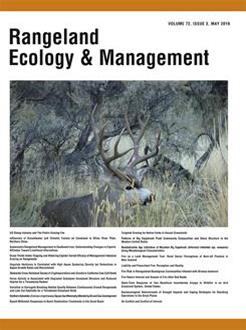In Great Plains rangelands, drought is a recurring disturbance. Ranchers in this region expect to encounter drought but may not be adequately prepared for it. Efforts to encourage drought preparedness would benefit from a better understanding of the conditions under which managers make decisions to minimize the impacts of drought. We tested the direct and moderating roles of the drought hazard and the social-ecological context on drought impacts and response. This study was conducted with ranchers in western and central South Dakota and Nebraska following the drought that began in 2012. We surveyed ranchers regarding the effects of the drought and their responses and used multimodel analysis to explore the relationships among measures of drought preparedness, drought response, and drought impacts. Drought severity was the primary predictor of all impacts, but specific types of impacts were varied depending on the operation's enterprise mix, resources, and management. The socioecological characteristics of the ranch system predicted drought response actions taken, by either providing the necessary resources and capacity to take action or creating sensitivity in the system that required action to be taken. We conclude with recommendations for learning from current drought experiences in order to better adapt to future drought events.
How to translate text using browser tools
30 April 2019
Socioecological Determinants of Drought Impacts and Coping Strategies for Ranching Operations in the Great Plains
Tonya R. Haigh,
Walt Schacht,
Cody L. Knutson,
Alexander J. Smart,
Jerry Volesky,
Craig Allen,
Michael Hayes,
Mark Burbach
ACCESS THE FULL ARTICLE

Rangeland Ecology and Management
Vol. 72 • No. 3
May 2019
Vol. 72 • No. 3
May 2019
adaptive capacity
rangeland
resilience
sensitivity
vulnerability




